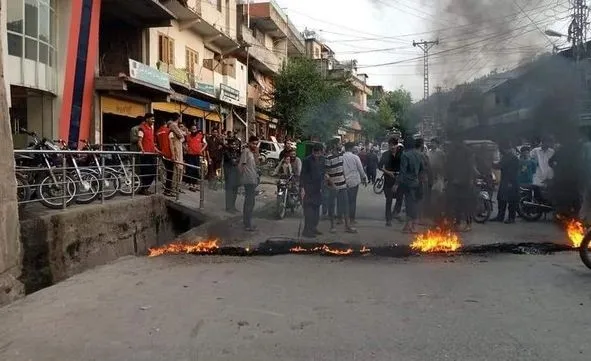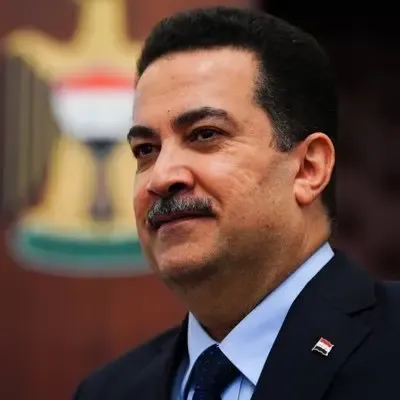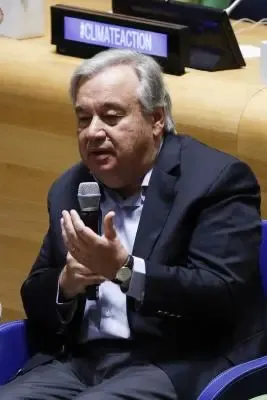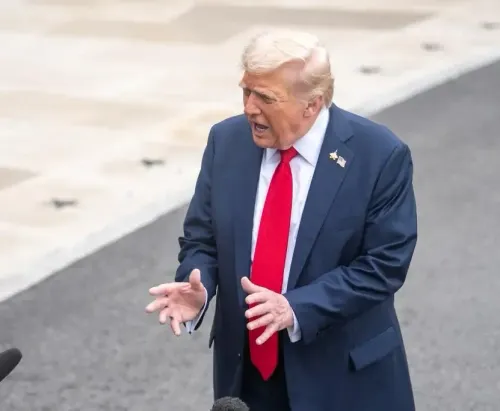Will ruling by force only fuel more unrest in PoK?

Synopsis
Key Takeaways
- Pakistan's control over PoK is weakening.
- Protests are met with violent crackdowns.
- International concerns are growing regarding human rights.
- Economic dependency on Pakistan hampers PoK's autonomy.
- Heavy-handed tactics could lead to increased unrest.
London, Oct 3 (NationPress) The situation of unrest in Pakistan-occupied Kashmir has revealed a fundamental contradiction in Pakistan's long-standing policy regarding Kashmir. Despite Pakistan's assertions to defend the rights of Kashmiris on international platforms, the reality within PoK is markedly different. Recent protests and the resulting crackdown underscore Pakistan's diminishing control over this region, as detailed in a report released on Friday.
At least nine individuals have lost their lives in the latest confrontations in PoK. Additionally, the police conducted a raid on the National Press Club in Islamabad, resulting in the beating and injuring of journalists and Kashmiri activists who were participating in solidarity gatherings, as reported by Global Order.
The report elaborates, 'The political shockwaves from this situation are now echoing in London. In a letter dated September 30, 2025, Imran Hussain MP, Chair of the All-Party Parliamentary Group on Kashmir, urged the UK Government to pressure Pakistan for de-escalation, restoration of communications, and meaningful dialogue. Hussain’s intervention is significant as it highlights the growing concern within the British Parliament regarding Islamabad’s governance of its administered territories.'
The report also outlines several reasons behind Pakistan's repression of protests in PoK. It states, 'The territory is under stringent federal control. The local legislative assembly holds no true power; rather, authority resides with the ministries in Islamabad and the security establishment. Protests demanding lower taxes or improved services are viewed not merely as economic grievances, but as implicit threats to Pakistan’s sovereignty.'
According to the report, PoK's economy is heavily dependent on subsidies from Pakistan. However, facing its own financial crisis, Pakistan has limited capacity to offer support to PoK. Instead, Pakistan has resorted to coercive methods to quell discontent, reinforcing the perception that PoK is treated as a client territory rather than an autonomous region. Dissent is managed through blackouts, arrests, and media restrictions, obstructing international observers from effectively assessing the situation.
Global Order stated, 'Islamabad portrays Kashmir solely as an issue of Indian sovereignty, deflecting attention from its governance of the area... Pakistani authorities obstruct journalists and NGOs, making independent reports of abuses a rarity. The protests and subsequent crackdown reveal that Pakistan’s control over the region is fragile. Ruling through force rather than reform is likely to incite further unrest. Should protests escalate, Islamabad’s entire Kashmir strategy may falter. Letters like that of Imran Hussain indicate that Western capitals are beginning to recognize this shift. For the UK and other international stakeholders, the primary focus remains the human rights of those impacted by the blackout.'









